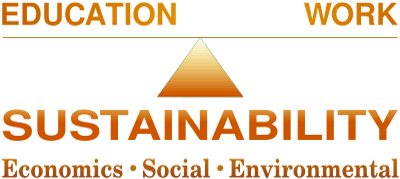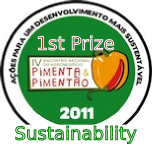In this age of global economics the farmer is paradoxically too often excluded from significant societal
information. Man does not only receive culture from his predecessors but also identifies new elements and
renovates from this new insight. Culture is a factor of continual humanization and renovation. Life in a
group founds culture and individual enrichment which, inevitably, promotes progress, innovation and renovation
in an environment of constant change. AgriCulture and those who work in this field do not live outside the
boundaries of this reality, but are, however, COMPLETELY EXCLUDED from the technical and decision making
community. The simple farmer, or agriculturist, does have some contact with those who are academically trained
but inevitably without evolutionary perspectives, without financial prospects, etc… they unfortunately become
victims of the marketing machine. Unregulated competitiveness and macro-social-economic-mechanisms irresponsibly
capitalize markets and paralyze sustainable growth essential to the quality of LIFE on this planet. A monetary
sequence of values dominates societies’ consciousness rather than a life sequence of values, which has been demoted
to the subconscious due to the belief that values promoting a greater quality of life are unessential because they
are economically non-viable.
This is not the case with DaMata.org (Producers of Chili from Ilheus).
Agricultural training cannot exclusively teach courses on manioc or bananas, fertilizing soil, erosion control, nor
planting seedlings. Classical agronomical training is fundamental but insufficient and destined to contribute to
the continuance of classic errors. Agriculture is a multidisciplinary study and there is a lot more at stake in
our world than farming solutions to satisfy profit margins. DaMata uncompromisingly believes that farming
solutions are to sustainably satisfy hunger, malnutrition, starvation, and that education nurtures dignity and
social integration. Logically, as in any business monetary factors are inherent in the production process.
Inevitably however, quality, efficiency, sustainability, and preservation are overlooked criteria when the
monetary sequence of values prevails over the life sequence of values.
Contact with different cultures, exchange of information, and new commercial relationships which have in the
past been intangible to farmers must be made accessible. This socio-economical link can be made when the
multidisciplinary operational network of the DaMata cooperative functions as a bridge between the plant’s stem
and the consumer’s basket. Making information accessible is indispensable.
Computer Literacy is a right.
Agricultural events cannot only include livestock auctions, agricultural production seminars, produce fairs,
pruning techniques, grafting techniques, etc.
Television and various institutions already do this which although are beneficial neglect the significance of
an artistic-cultural element. Encouraging creativity and innovating on traditional techniques while providing
aptitude in computer skills is fundamental to finding appropriate local solutions for real local problems, as
well as, indispensable to intelligent economic negotiations and non-discriminatory social integration.
Therefore, Computer Literacy is a central pillar of Agriculture.


